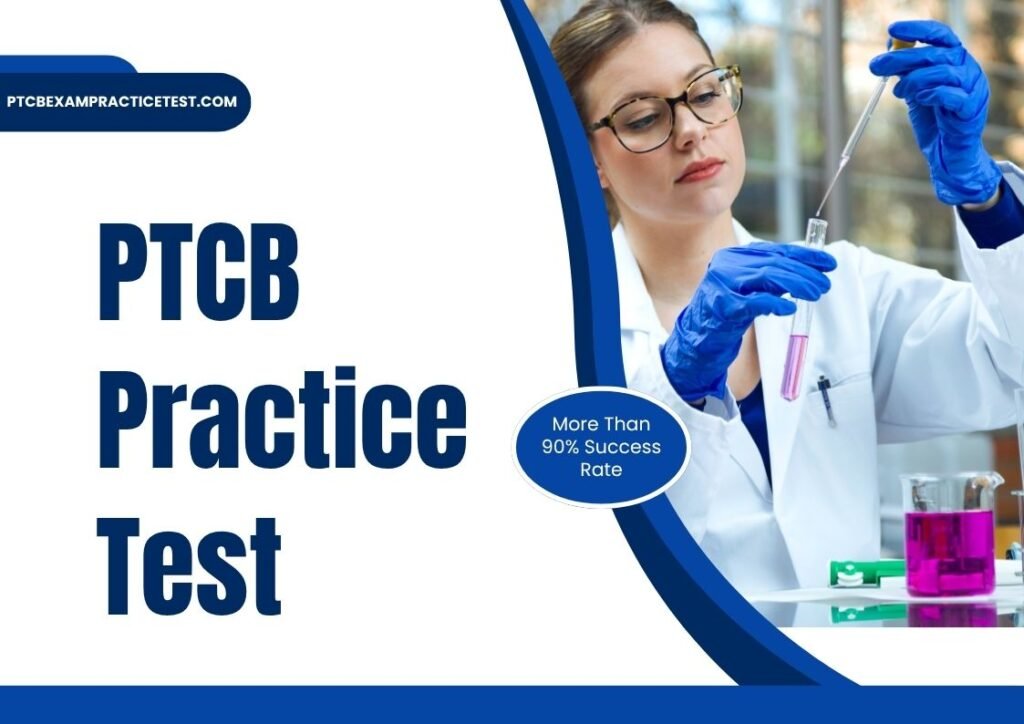Are you looking forward to cracking the PTCB Exam and want to assess your preparation with the help of the latest practice tests?
Well, we have you covered with our comprehensive PTCB practice tests that help students analyze and improve their performance. Realistic mock tests at the appropriate difficulty level make sure that you are aware of all question types and have a clear idea of the important topics in your syllabus.
Move closer than ever to your dream professional career by clearing the PTCB Exam with the help of our regularly updated PTCB Study Guide. PTCB Exam Practice Test is an initiative started by some of the best tutors for pharmacy technicians. After studying hours on a topic, what you need is a platform where you can apply your knowledge to practical situations, challenging questions, and moving case studies.
And we are here to provide you with just that!
PTCB PRACTICE Test 2025
FREE PTCB Exam Sample
Made BY Skilled Practitioners
PTCB Practice Test Series
About the PTCB Exam

The Pharmacy Technician Certification Board (PTCB) exam assesses the knowledge and skills required for the pharmacy industry. On completion of the exam, students are awarded the license to practice as a pharmacy technician.
The PTCB exam syllabus covers pharmacy law, medication safety, ethical compliance, inventory management, pharmaceutical calculations, medication order entry, medicine engineering, patient communication, interaction, etc.
It covers areas such as medication dispensing, inventory management, pharmacy law, and pharmaceutical calculations. It is a crucial certificate that makes you eligible to assess doctors, chronic care teams, pharmaceutical companies, and psychologists in determining and administering medication to patients.
What To Expect?
The PTCB is an MCQ computer-based exam with 1 correct option for each question. Based on the actual exam, our test series also follows the format of 90 questions, of which 80 are marked and 10 are unmarked. You will get a total of 110 minutes to solve them.
The PTCB reports the result as scaled scores in the range of 1000 to 1600. To pass the exam you need to score more than 1400. Our mock test portal displays the test results after you have attempted the paper, and with a graphical analysis of your answers, it shows which specific subtopics you are falling behind on!
Along with a wide variety of PTCB practice questions, you will find detailed solutions that will clear your doubts and give you confidence. With our multitude of learning and practice resources, your chances of clearing the exam will drastically improve.
Tips to Improve Your Result
Clearing a competitive exam like the PTCB takes a lot of effort, practice, and time.
To learn the topics well, students need to familiarize themselves with both the MCQ pattern and the syllabus. Here are some tips to improve your performance on the PTCB exam:
- Firstly, get comfortable with the exam format. Learn how to grasp the inner meaning of a question and dodge tricky, confusing hints to answer objectively.
- Stay updated about the latest news and information regarding the exam. You will find the latest news about PTCB dates, exam patterns, etc on the PTCB Exam Practice Test website.
- Study smart and prioritize topics. Develop a study strategy to cover larger content in less time. Give time to topics you find difficult to grasp, instead.
- Practice contextual learning that is based on concepts. Don’t focus on simple memorization.
- Reflect upon the practice test you gave and take time to analyze your mistakes.
By following these tips and dedicating consistent effort to your preparation, you’ll be well-equipped to excel in your PTCB Practice Exam and achieve success on your journey to becoming a certified pharmacy technician.
Frequently Asked Questions
Q. What is the passing score for the PTCB exam?
PTCB exams typically require a score of at least 1,400 out of 1,600 points for passing, depending on the difficulty of questions; generally speaking, scaled scores between 1,400-1,600 are considered passing scores.
Q. How long is the PTCB exam?
The PTCB exam takes two hours and includes 90 questions that candidates must attempt within that time limit. Candidates are advised to manage their time wisely.
Q. What are the costs involved with taking the PTCB examination?
As of now, the PTCB exam costs $129. This fee covers both the examination itself and access to official PTCB study materials.
Q. How frequently must I renew my certification?
PTCB certifications are valid for two years, requiring pharmacy technicians to complete 20 hours of continuing education and pass the recertification exam prior to expiration of their certifications.
Q. Can I take the PTCB examination online?
Yes, the PTCB exam can be taken online at Pearson VUE test centers located throughout certain regions. You must schedule your examination through the PTCB website.
Q. What happens if I fail the PTCB exam?
If you fail the PTCB exam, retaking can take place after 60 days; three attempts within 12 months may be attempted again at different testing centers; each retake requires payment of the associated exam fee.

